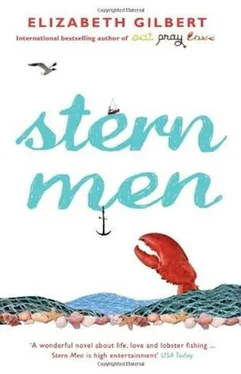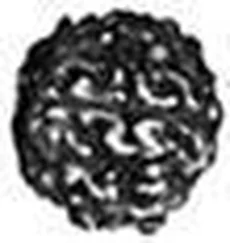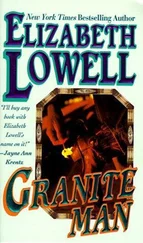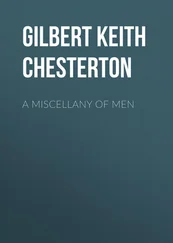He opened the door of the truck and paused. “You don’t have any luggage?” he asked.
She shook her head and got into the truck.
Cal said, with dramatic fatigue, “If you bring no clothes to Miss Vera’s house, Miss Vera will have to buy you new clothes.”
When Ruth did not answer, he said, “You know that, don’t you? If this is a protest, it will backfire in your pretty face. You inevitably make things harder for yourself than you have to.”
“Cal,” Ruth whispered conspiratorially, and leaned toward him in the cab of the truck. “I don’t like to bring luggage when I go to Concord. I don’t like anyone at the Ellis mansion to think I’ll be staying.”
“Is that your trick?”
“That’s my trick.”
They drove toward the wharf, where Cal parked the truck. He said to Ruth, “You look very beautiful today.”
Now it was Ruth who sighed dramatically.
“You eat and eat,” Cal continued, “and you never get heavier. That’s marvelous. I always wonder when your big appetite’s going to catch up to you and you’ll balloon on us. I think it’s your destiny.”
She sighed again. “You make me so goddamn tired, Cal.”
“Well, you make me goddamn tired, too, sweetheart.”
They got out of the truck, and Ruth looked down the wharf and across the cove, but the Ellises’ boat, the Stonecutter, was not there. This was a surprise. She knew the routine. Cal Cooley had been ferrying Ruth around for years, to school, to her mother. They always left Fort Niles in the Stonecutter, courtesy of Mr. Lanford Ellis. But this morning Ruth saw only the old lobster boats, bobbing. And a strange sight: there was the New Hope. The mission boat sat long and clean on the water, her engine idling.
“What’s the New Hope doing here?”
“Pastor Wishnell is giving us a ride to Rockland,” Cal Cooley said.
“Why?”
“Mr. Ellis doesn’t want the Stonecutter used for short trips anymore. And he and Pastor Wishnell are good friends. It’s a favor.”
Ruth had never been on the New Hope, though she’d seen it for years, cruising. It was the finest boat in the area, as fine as Lanford Ellis’s yacht. The boat was Pastor Toby Wishnell’s pride. He may have forsworn the great fishing legacy of the Wishnell family in the name of God, but he had kept his eye for a beautiful boat. He’d restored the New Hope to a forty-foot glass-and-brass enchantress, and even the men on Fort Niles Island, all of whom loathed Toby Wishnell, had to admit that the New Hope was a looker. Although they certainly hated to see her show up in their harbor.
They didn’t see her much, though. Pastor Toby Wishnell was rarely around. He sailed the coast from Casco to Nova Scotia, ministering to every island along the way. He was nearly always at sea. And, though he was based directly across the channel on Courne Haven Island, he did not often visit Fort Niles. He came for funerals and for weddings, of course. He came for the occasional baptism, although most Fort Niles citizens skipped that particular procedure to avoid asking for him. He came to Fort Niles only when he was invited, and that was seldom.
So Ruth was indeed surprised to see his boat.
On that morning, a young man was standing at the end of the Fort Niles dock, waiting for them. Cal Cooley and Ruth Thomas walked toward him, and Cal shook the boy’s hand. “Good morning, Owney.”
The young man did not answer but climbed down the wharf ladder to a neat little white rowboat. Cal Cooley and Ruth Thomas climbed down after him, and the rowboat rocked delicately under their weight. The young man untied his line, seated himself in the stern, and rowed out to the New Hope. He was big-maybe twenty years old, with a large, squarish head. He had a thick square body, with hips as wide as his shoulders. He wore oilskins, like a lobsterman, and had on fisherman’s tall rubber boots. Though he was dressed like a lobsterman, his oilskins were clean and his boots did not smell of bait. His hands on the oars were square and thick like a fisherman’s hands, yet they were clean. He had no cuts or knobs or scars. He was in a fisherman’s costume, and he had a fisherman’s body, but he was obviously not a fisherman. When he pulled the oars, Ruth saw his huge forearms, which bulged like turkey legs and were covered with blond hairs scattered as light as ash. He had a homemade crew cut and yellow hair, a color never seen on Fort Niles Island. Swedish hair. Light blue eyes.
“What’s your name again?” Ruth asked the boy. “Owen?”
“Owney,” Cal Cooley answered. “His name is Owney Wishnell. He’s the pastor’s nephew.”
“Owney?” Ruth said. “Owney, is it? Really? Hello there, Owney.”
Owney looked at Ruth but did not greet her. He rowed quietly all the way out to the New Hope. They climbed a ladder, and Owney hoisted the rowboat up behind him and stowed it on deck. This was the cleanest boat Ruth had ever seen. She and Cal Cooley walked back to the cabin, and there was Pastor Toby Wishnell, eating a sandwich.
“Owney,” Pastor Wishnell said, “let’s get moving.”
Owney hauled up the anchor and set the boat in motion. He sailed them out of the harbor, and they all watched him, although he did not seem aware of them. He sailed out of the shallows around Fort Niles and passed buoys that rocked on the waves with warning bells. He passed close to Ruth’s father’s lobster boat. It was early in the morning still, but Stan Thomas had been out for three hours. Ruth, leaning over the rail, saw her father hook a trap buoy with his long wooden gaff. She saw Robin Pommeroy in the stern, cleaning out a trap, tossing short lobsters and crabs back into the sea with a flick of his wrist. Fog circled them like a spook. Ruth did not call out. Robin Pommeroy stopped his work for a moment and looked up at the New Hope. It clearly gave him a shock to see Ruth. He stood for a moment, with his mouth hanging open, staring up at her. Ruth’s father did not look up at all. He was not interested in seeing the New Hope with his daughter aboard.
Farther out, they passed Angus Addams, fishing by himself. He did not look up, either. He kept his head down, pushing rotting herring into bait bags, furtively, as if he were stuffing loot into a sack during a bank robbery.
When Owney Wishnell was fully on track and heading on the open sea toward Rockland, Pastor Toby Wishnell finally addressed Cal Cooley and Ruth Thomas. He regarded Ruth silently. He said to Cal, “You were late.”
“I’m sorry.”
“I said six o’clock.”
“Ruth wasn’t ready at six o’clock.”
“We were to leave at six in order to be in Rockland by early afternoon, Mr. Cooley. I explained that to you, didn’t I?”
“It was the young lady’s fault.”
Ruth listened to the conversation with some pleasure. Cal Cooley was usually such an arrogant prick; it was engaging to see him defer to the minister. She’d never seen Cal defer to anyone. She wondered whether Toby Wishnell was really going to chew Cal a new asshole. She would very much like to watch that.
But Toby Wishnell was finished with Cal. He turned to speak to his nephew, and Cal Cooley glanced at Ruth. She raised an eyebrow.
“It was your fault,” he said.
“You’re a brave man, Cal.”
He scowled. Ruth turned her attention to Pastor Wishnell. He was still an exceedingly handsome man, now in his mid-forties. He had probably spent as much time at sea as any Fort Niles or Courne Haven fisherman, but he did not look like any of the fishermen Ruth had known. There was a fineness about him that matched the fineness of his boat: beautiful lines, an economy of detail, a polish, a finish. His blond hair was thin and straight, and he wore it parted on the side and brushed smooth. He had a narrow nose and pale blue eyes. He wore small, wire-framed glasses. Pastor Toby Wishnell had the look of an elite British officer: privileged, cool, brilliant.
Читать дальше









